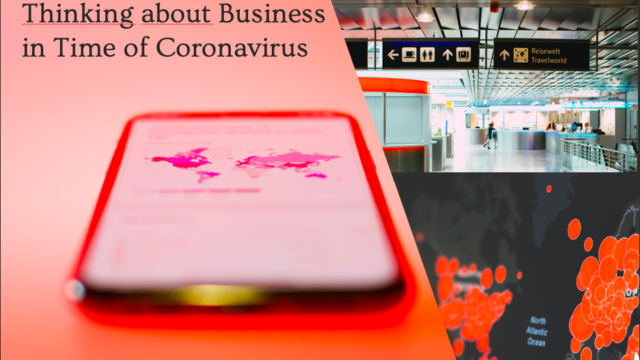Branding Issues, E-commerce and Smart Working, during pandemic
Considerations, Prospectives and Some Evidences in the Beauty Industry
shared with Communication Experts, Consultants and Beauty Companies.
In the last few months of lockdown in Europe, companies have changed dramatically their established action plans to react to new situations and manage the limited access to products and services for people. Among the different effects which are influencing companies and businesses, in this article three main issues are taken into consideration: the role of the brand on action plan, the importance of e-commerce, and the changes brought by smart working, in particular in the beauty industry. The elements for this article have been collected with the precious help of several experts, consultants and managers in France and Italy.
BRAND: BETWEEN ENGAGEMENT AND ENTERTAINEMENT
Covid-19 has shifted customer expectations looking more than ever for committed brands with purpose and real actions. Some elements of the company culture have assumed a prominent importance from the beginning of the crises leading the action to consolidate the presence of brands even with fallen sales.
During the lockdown, many brands have played an important social role sometimes very far from the only product prospective emerging with their real values and identity. Company communication has shifted towards a “humanization” of contents and messages centered on what actually helps people. In other cases, communication has shifted to entertainment giving people new insights during the long days at home. Beginning from the conversion of production (for sanitizing gel in cosmetics for example) to the organization of new social activities, several brands in beauty and lifestyle, but not only, experimented new ways of interactions with their customers, and people in general based on their DNA as an organization and their attitude to create interest.
What has emerged from several companies is their role as social actor, sometimes replacing or filling the gap left by legislators.
L’Occitane Group for example, have been responding to the pandemic in line with their values and commitments to people, concentrating on how contribute to support the communities where they operate and how to take care of the environment.
The first actions where addressed to help limit the spread of the virus and to support healthcare workers through donations free of charge across the world. Donations of hand-sanitizer for health authorities and healthcare workers in France, UK, Spain, Italy, and Switzerland and of soaps, moisturizing lotions and hand balms for healthcare workers suffering from skin lesions due to prolonged use of protective clothing. Inside the group, the action plan has previewed maintaining health coverage and above all, supporting the most vulnerable employees by guaranteeing a minimum basic income. The communication of the group has been focalized on safety and information people may need to get in touch with the brand, finding products and policies to get back to the retail experience.
Now with the re-opening of shops in Europe, the group acts to protect customers as the staff by taking safety measures, with new in-store protocol, called ‘no touch’ policy (with testers available on request only the respect of 1m minimum distance and so on) and rules for the staff to be followed worldwide. For prevention: like daily temperature check before coming to work and regular handwashing with soap or hand sanitiser, compulsory wearing of face masks on site, and increased disinfection of all touchpoints and workstations will help to slow the virus.
The brand culture has impacted the action plan of a company at many levels. An interesting case is the Italian brand Comfort Zone skincare division of Davines Group, which worked on a complete action plan involving internal teams, clients and prospective. The brand values have played a main role in their strategy, spreading the “Culture of Tribe” at every level of their organization to empower internal and external communities and avoid letting clients alone. As manufacturers in the professional sector, with a spread network of distributors and as supplier of many SME for salons and spas around the world, Davines promoted the sense to be part of “a tribe” to their clients and partners and ask them to form in turn a tribe with their own clients. With boutiques, spas and salons closed the best way to invest time was training, to learn and prepare the base for the future. In the tribe, clients and salons owners were involved in seminars and virtual workshops every day: giving room to new skills acquisition and supporting the business of their entire network finding solutions together. For example, they shared their know-how about e-commerce with their clients to make them create their own. To the external, other actions have taken place, like the distribution of sanitizing gels to spas and salons and freezing the payments of clients for 6 months. In line with the tribe values, another important action was to create an assistance fund for workers: managers paid half of their salary for employees in this fund to guarantee and preserve their job.
Of course, all these actions, born immediately as reaction to the pandemic have been possible because the companies were ready: culture, values and pratices were aligned in the organization to act coherently towards different publics with the same messages.
In case like these, it’s clear that the brand achieves for people a new legitimacy, where all what was communicated before, through story telling or social presence, become a real action to the people need of protection and to be reassured.
It’s the case of Laboratoires Filorga, the French cosmetic brand specialized in aesthetic medicine and distributed worldwide above all in pharmacies. The beginning of the lockdown has spilled the planification of the previewed launches forcing the company to find out what could really interest people locked at home and in a total changed mood. Moreover, the pharmacy, their main channel was hardly engaged during the crisis so they had to find new way of collaboration with them without taking too much of their attention. The idea coming from the Italian branch, the first to be hit by the virus, was simple: help people at home. Following the hashtag to invite people to stay safe at home #iorestoacasa (“I stay at home”) they created the social campaign #acasainbellezza (“at home in beauty”). Trial kits of products claiming the hashtag were distributed easily in pharmacies and other channels and at the same time on the Instagram brand page they created new contents about how to take care of our own skin at home, quizzes and new formats of stories (about products, beauty routines to stay active) involving influencers too. Celebrities of different fields were invited to speak about their “beauty stories” and good engagement and public audience has recorded also in training sessions and live videos.
With the spread of the pandemic, the social campaign was promoted in France, Spain and other countries, fitting it to the country specific situation and local culture.
THE E-COMMERCE OPTION
An important part of actions of companies is related to e-commerce and the expectation about the increasing of this channel in the future. For companies who didn’t sell online or less usual to digital, the crisis quickly pushed towards new operating practices giving the organization the chance to take a leap quite unexpected just few months before.
The developing of e-commerce and how it will impact selling is a debated issue on which there diverging opinions. E-Commerce sales are expected to account for about 22% of total global retail sales by 2023, up from 14% in 2019 (source: eMarteker).
Many people believe that when it will be possible to definitively come back to normality the proportion between physical channel and virtual channel will return to the situation before the crises because clients need to regain their habits. Other companies think that the country culture and the need of social contact will impact more than ever on the choice of a channel for shopping.
By the way, the “online experience” of the luxury cosmetic brand Sisley Paris is quite useful for some considerations. During the lockdown, the online sales of products in European countries have registered very interesting results, with the shift of shopping from boutiques to e-commerce. So, the consumption of beauty products didn’t stop. If the result of the group was positive, the case of Italy was quite intense because the e-commerce was launched by chance just in February. Previewed already before the pandemic, it recorded the highest sales results in Europe, exceeded the expectations. Clients have found another way to buy, but not only, to stay in touch with the brand, with a high-level interaction on the platform. Clients were interesting in new beauty routines about products linked to staying at home, and their expectations about the quality or the service of the brand seemed to have not been influenced by the lockdown.
Nonetheless with these encouraging results, the intention of the group is to preserve their physical channel, the perfume stores, which they manage through an extensive network of beauty consultants (only in Italy they count around 120) and to empower it as soon as it will be possible.
In this case too, this orientation comes directly from their company culture and values. The brand Sisley, owned 100% by a family, has always considered the direct relation with consultants and clients an asset to their organization. As a matter of fact, during the lockdown actions to preserve this bond and don’t leave their teams and consultants alone have been implemented, like everyday training and as other brands cited, they invested in their network freezing payments and through donations to communities.
For luxury and lifestyle brands e-commerce have compensated in part the decline or the limit to access of traditional channels. At the same time, the most groups believe the best is to work to create a complete experience for customers and will continue to invest in the retail and other offline channels and in their staff, giving high value to physical connections.
How the social contact will impact on our shopping behaviors and decisions will be a nice matter to observe in the future depending deeply on uses and cultures of each countries.
SMART WORKING IMPLICATIONS
Last but not least, we can consider it like a “silent revolution”. Adopted as mandatory, companies have measured their agility and ability to adapt to this new way with several impacts on hierarchy. Smart working has set a new speed to work and tasks: less distraction, more time to be concentrated, and sometimes more productivity. But if this happens on the individual plan, on the organization plan the effects are different.
Enterprises with flat organization and result-oriented were no new to smart working solution and the distance hasn’t impacted so much on their routines. On the other side, traditional company structures, oriented to control, or less usual to smart working also for country regulatory limits, have experimented the distance from the authority. Sometimes it has left more chance to personal initiatives, with reflections on the creativity of the teamwork, sometimes it has meant the request of more charge of work to employees because of “they had more time at home”.
Readjusting priorities and finding new ways of interaction and technologic solutions to collaborate has been a test-bench for companies, demonstrating their ability to fit, in Darwinian sense, to the situation: in same cases improving collaboration through organization levels and departments or, on the contrary, increasing the pre-exiting gaps.
Virtual meetings have revealed an interesting aspect for enterprises: reducing costs of travels, with impact on the environment too. The fact that a lot of meetings were unnecessary, because it’s possible to get the same results gaining time and money moving meeting on-line, become an evidence. The loss of human touch in any case was the worst impact, with negative side effect on team mood.
For the future the most part of companies are going to introducing access to smart working in a stable way in their organization, at least as option of few days par month, both for reason of safety, both for reason of cost saving, with a step forward into flexibility achieved for a great number of companies just in few months instead of years.
Smart working and lockdown have influenced another important “practice”: the organization of events. The most part of companies consider human contact indispensable to create relations with clients, partners and stakeholders, and new event formats are already in preparation. The chance to organize or participate to an event again is hardly missed. Exclusive events, or very specialized, with no more than 20 or 30 participants will be proposed, at least at the beginning, maybe improving the interactions among people and professionals, but it’s early to preview what will be happen in this field, even if several companies desires to come back to previewed event plan and have moved their calendar to 2021.
FINAL CONSIDERATIONS
In the first weeks of lockdown many companies cut missions or suspended projects to save costs. Today, with the first end of lockdown in Europe, companies reorganize manufacture increasing flexibility, empowering e-commerce and social presence, or studying new way to meet. Beauty sector has registered some losses but brands and business networks seem to resist, acting as social actor in line with their values and finding new ways to build and preserve their relations with clients, partners, teams, public in general. Some effects of pandemic will be part of working practices and routines, other will be immediately replaced by the pre-pandemic ones, in any case Covid-19 is a catalyst and we will see what the long-term effects will be and what will be left permanently behind.
A special thanks to companies who took part to the research and in particular to:
Advent — Johan Benilsi, Ceo
Cinquième Sens– Isabelle Ferrand, President
Davines/Comfort Zone — Davide Manzoni, Sales Director
Groupe Rouge Vif — Thomas Berber, Development Director
Hula Hoop -Nicolas Minisini, Strategy Director
Laboratoires Filorga — Emidio Croce, Marketing Director
Lesgens — Thomas De Soutter, Head of Strategy & New Business
L’Occitane Group — Michele Succio, General Manager, L’Occitane Italy.
Sisley Paris — Giorgia Smrekar, Marketing Manager
Published at http://www.medium,com on May 25, 2020.







